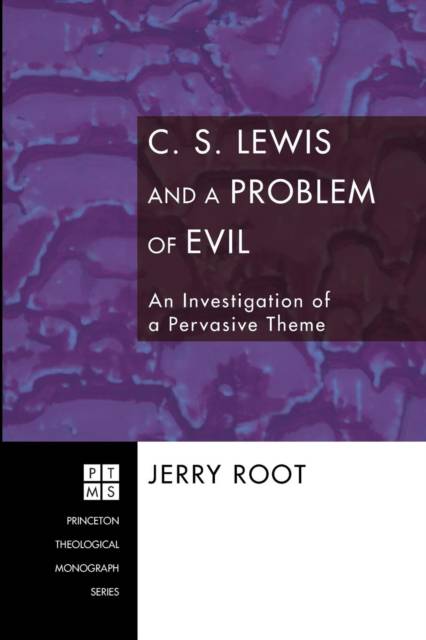
En raison d'une grêve chez bpost, votre commande pourrait être retardée. Vous avez besoin d’un livre rapidement ? Nos magasins vous accueillent à bras ouverts !
- Retrait gratuit dans votre magasin Club
- 7.000.000 titres dans notre catalogue
- Payer en toute sécurité
- Toujours un magasin près de chez vous
En raison de la grêve chez bpost, votre commande pourrait être retardée. Vous avez besoin d’un livre rapidement ? Nos magasins vous accueillent à bras ouverts !
- Retrait gratuit dans votre magasin Club
- 7.000.0000 titres dans notre catalogue
- Payer en toute sécurité
- Toujours un magasin près de chez vous
51,95 €
+ 103 points
Format
Description
C. S. Lewis was concerned about an aspect of the problem of evil he called subjectivism: the tendency of one's perspective to move towards self-referentialism and utilitarianism. In C. S. Lewis and a Problem of Evil, Jerry Root provides a holistic reading of Lewis by walking the reader through all of Lewis's published work as he argues Lewis's case against subjectivism. Furthermore, the book reveals that Lewis consistently employed fiction to make his case, as virtually all of his villains are portrayed as subjectivists. Lewis's warnings are prophetic; this book is not merely an exposition of Lewis, it is also a timely investigation into the problem of evil.
Spécifications
Parties prenantes
- Auteur(s) :
- Editeur:
Contenu
- Nombre de pages :
- 308
- Langue:
- Anglais
- Collection :
- Tome:
- n° 96
Caractéristiques
- EAN:
- 9781556357206
- Date de parution :
- 01-01-09
- Format:
- Livre broché
- Format numérique:
- Trade paperback (VS)
- Dimensions :
- 150 mm x 224 mm
- Poids :
- 430 g

Les avis
Nous publions uniquement les avis qui respectent les conditions requises. Consultez nos conditions pour les avis.






